Scott Sowerby is a Canadian historian and Associate Professor in the Department of History, Northwestern University.
He was awarded a PhD from Harvard University in 2006. His book Making Toleration: The Repealers and the Glorious Revolution was awarded the Royal Historical Society's The Whitfield Prize and was shortlisted for Phi Beta Kappa Society's Ralph Waldo Emerson Award. [1] The book is about James II of England's allies in repealing penal laws against religious minorities (such as the Dissenters and Catholics), a group Sowerby labels the Repealers.

The Glorious Revolution is the term, first used in 1689, to summarise events leading to the deposition of James II and VII of England, Ireland, and Scotland in November 1688 and his replacement by his daughter Mary II and her husband, who was also James's nephew William III of Orange, de facto ruler of the Dutch Republic. Known as the Glorieuze Overtocht or Glorious Crossing in the Netherlands, it was the last successful invasion of England, but has also been described as an internal coup.
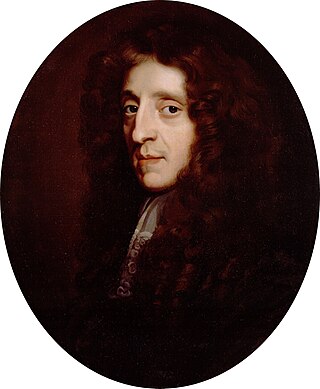
John Locke was an English philosopher and physician, widely regarded as one of the most influential of Enlightenment thinkers and commonly known as the "father of liberalism". Considered one of the first of the British empiricists, following the tradition of Francis Bacon, Locke is equally important to social contract theory. His work greatly affected the development of epistemology and political philosophy. His writings influenced Voltaire and Jean-Jacques Rousseau, and many Scottish Enlightenment thinkers, as well as the American Revolutionaries. His contributions to classical republicanism and liberal theory are reflected in the United States Declaration of Independence. Internationally, Locke's political-legal principles continue to have a profound influence on the theory and practice of limited representative government and the protection of basic rights and freedoms under the rule of law.

The Maryland Toleration Act, also known as the Act Concerning Religion, the first law in North America requiring religious tolerance for Christians. It was passed on April 21, 1649, by the assembly of the Maryland colony, in St. Mary's City in St. Mary's County, Maryland. It created one of the pioneer statutes passed by the legislative body of an organized colonial government to guarantee any degree of religious liberty. Specifically, the bill, now usually referred to as the Toleration Act, granted freedom of conscience to all Christians. Historians argue that it helped inspire later legal protections for freedom of religion in the United States. The Calvert family, who founded Maryland partly as a refuge for English Catholics, sought enactment of the law to protect Catholic settlers and those of other religions that did not conform to the dominant Anglicanism of Britain and her colonies.
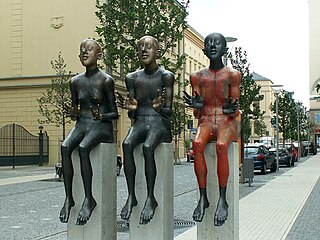
Toleration is when one allows, permits, or accepts an action, idea, object, or person that one dislikes or disagrees with.

An edict of toleration is a declaration, made by a government or ruler, and states that members of a given religion will not suffer religious persecution for engaging in their traditions' practices. Edicts may imply tacit acceptance of a state religion.
The Declaration of Indulgence, also called Declaration for Liberty of Conscience, was a pair of proclamations made by James II of England and Ireland and VII of Scotland in 1687. The Indulgence was first issued for Scotland on 12 February and then for England on 4 April 1687. An early step towards establishing freedom of religion in the British Isles, it was cut short by the Glorious Revolution.
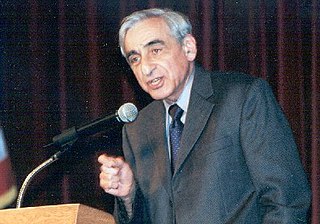
Michael Laban Walzer is an American political theorist and public intellectual. A professor emeritus at the Institute for Advanced Study (IAS) in Princeton, New Jersey, he is editor emeritus of Dissent, an intellectual magazine that he has been affiliated with since his years as an undergraduate at Brandeis University. He has written books and essays on a wide range of topics—many in political ethics—including just and unjust wars, nationalism, ethnicity, Zionism, economic justice, social criticism, radicalism, tolerance, and political obligation. He is also a contributing editor to The New Republic. To date, he has written 27 books and published over 300 articles, essays, and book reviews in Dissent, The New Republic, The New York Review of Books, The New Yorker, The New York Times, Harpers, and many philosophical and political science journals.

A Letter Concerning Toleration (Epistola de tolerantia) by John Locke was originally published in 1689. Its initial publication was in Latin, and it was immediately translated into other languages. Locke's work appeared amidst a fear that Catholicism might be taking over England, and responds to the problem of religion and government by proposing religious toleration as the answer. This "letter" is addressed to an anonymous "Honored Sir": this was actually Locke's close friend Philipp van Limborch, who published it without Locke's knowledge.

Gordon Stewart Wood is an American historian and professor at Brown University. He is a recipient of the 1993 Pulitzer Prize for History for The Radicalism of the American Revolution (1992). His book The Creation of the American Republic, 1776–1787 (1969) won the 1970 Bancroft Prize. In 2010, he was awarded the National Humanities Medal by President Barack Obama.
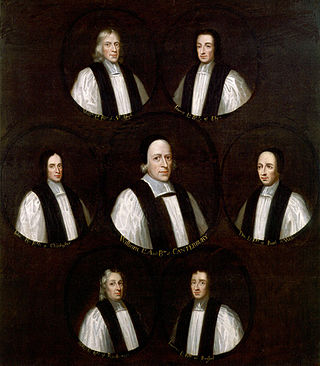
The Seven Bishops were members of the Church of England tried and acquitted for seditious libel in June 1688, an act viewed as a significant element in the events that led to the November 1688 Glorious Revolution and deposition of James II.

John William Middendorf II is a former Republican United States diplomat and Secretary of the Navy.
Countervailing power, or countervailance, is the idea in political theory that the wielding of power by two or more groups, centers, or sets of interests within a polity can, and often does, yield beneficial effects through productive opposition and containment between opposing forces. As a political concept, it resembles those of agonism, agonistic pluralism, and checks and balances, encapsulated in the often-quoted phrase from Federalist No. 51 that "ambition must be made to counteract ambition." The notion of countervailance has been applied in both politics and economics.

James VII and II was King of England and Ireland as James II and King of Scotland as James VII from the death of his elder brother, Charles II, on 6 February 1685. He was deposed in the Glorious Revolution of 1688. He was the last Catholic monarch of England, Scotland and Ireland. His reign is now remembered primarily for conflicts over religious tolerance, but it also involved struggles over the principles of absolutism and the divine right of kings. His deposition ended a century of political and civil strife in England by confirming the primacy of the English Parliament over the Crown.
Jonathan Irvine Israel is a British writer and academic specialising in Dutch history, the Age of Enlightenment and European Jews. Israel was appointed as Andrew W. Mellon Professor in the School of Historical Studies at the Institute for Advanced Study, Princeton, New Jersey, in January 2001 and retired in July 2016. He was previously Professor of Dutch History and Institutions at the University College London.
Perez Zagorin was an American historian who specialized in 16th- and 17th-century English and British history and political thought, early modern European history, and related areas in literature and philosophy. From 1965 to 1990, he taught at the University of Rochester, New York, retiring as the Joseph C. Wilson Professor of History Emeritus.
Ernest Samuels was an American university professor and scholar of American literature. He spent his career at Northwestern University and is best known for his biography of Henry Adams, which won several major prizes.
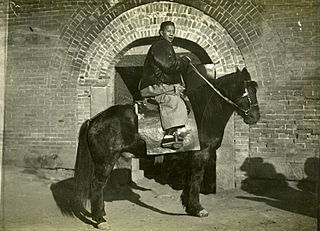
Arthur de Carle Sowerby was a British naturalist, explorer, writer, and publisher in China. His father was Arthur Sowerby.
Steven Pincus is the Thomas E. Donnelly Professor of British History at the University of Chicago, where he specializes in seventeenth- and eighteenth-century British and European history.

The Toleration Act 1688, also referred to as the Act of Toleration, was an Act of the Parliament of England. Passed in the aftermath of the Glorious Revolution, it received royal assent on 24 May 1689.

A Qualified Chapel, in eighteenth- and nineteenth-century Scotland, was an Episcopal congregation that worshipped liturgically but accepted the Hanoverian monarchy and thereby "qualified" under the Scottish Episcopalians Act 1711 for exemption from the penal laws against the Episcopal Church of Scotland.